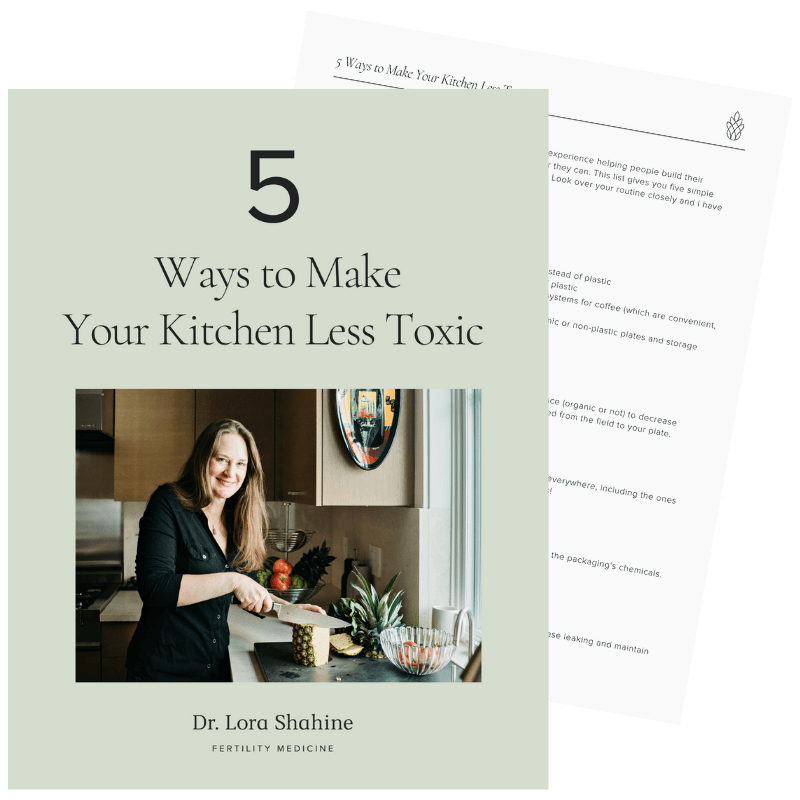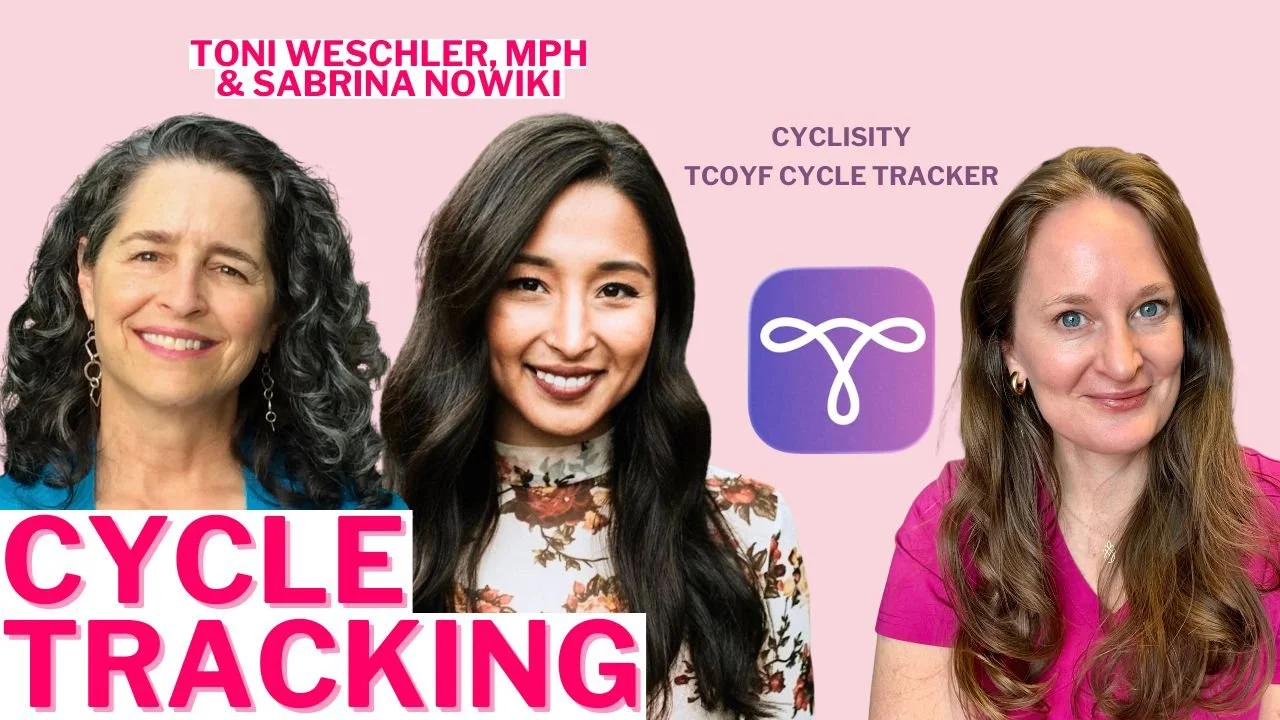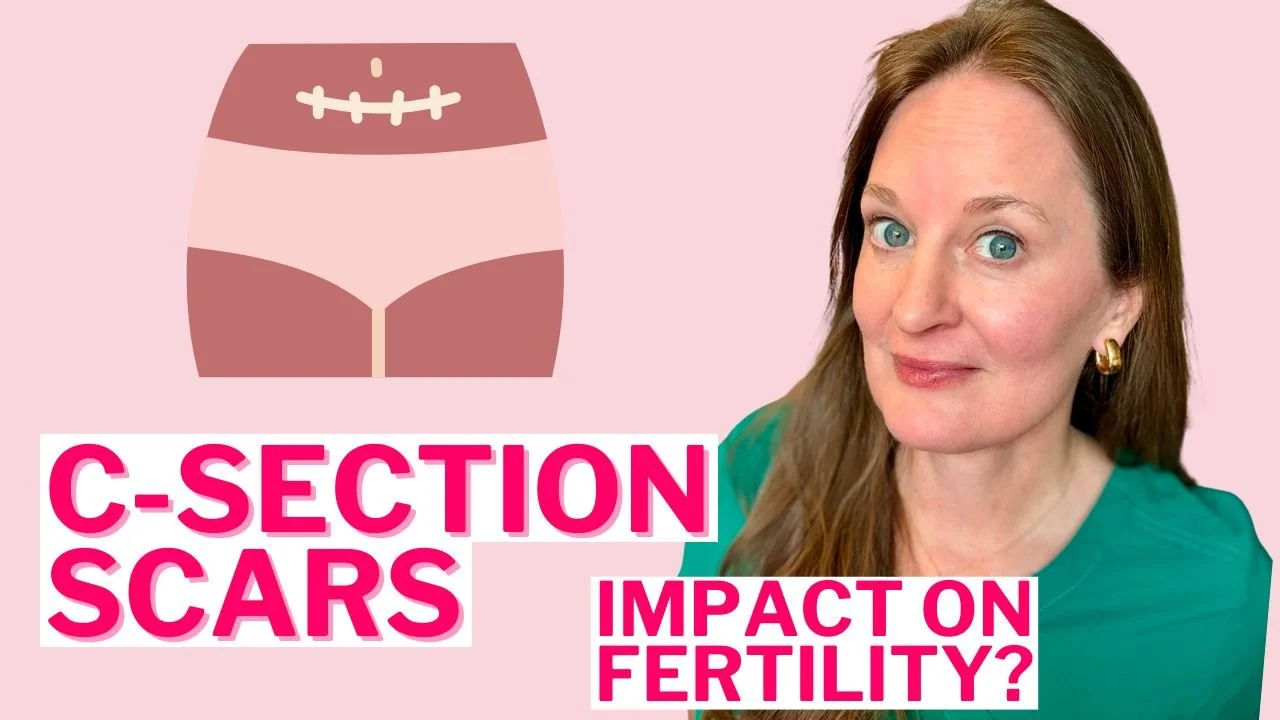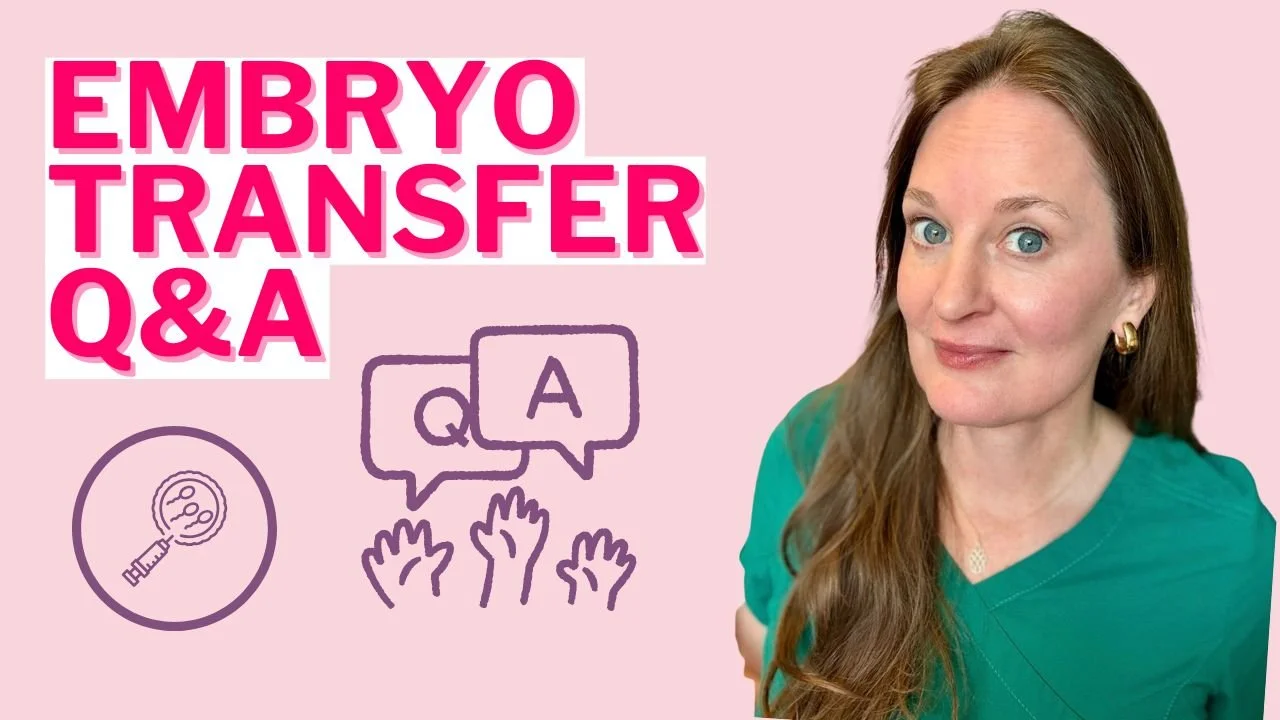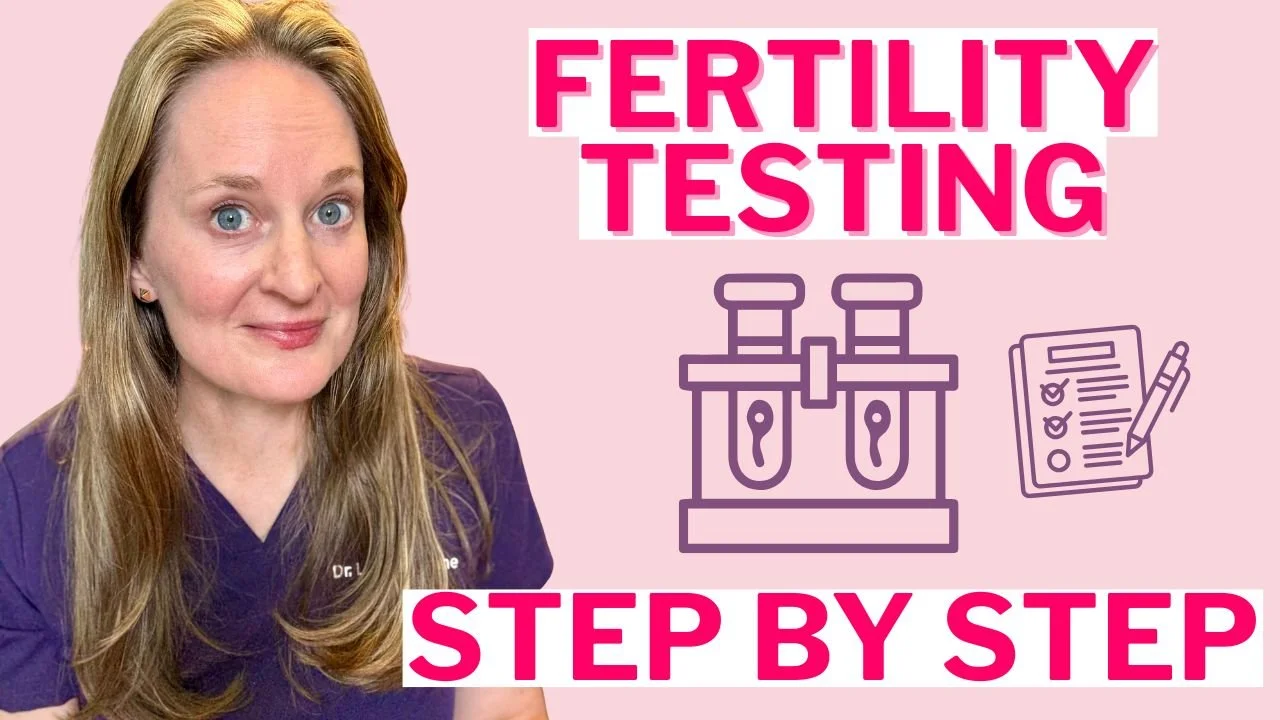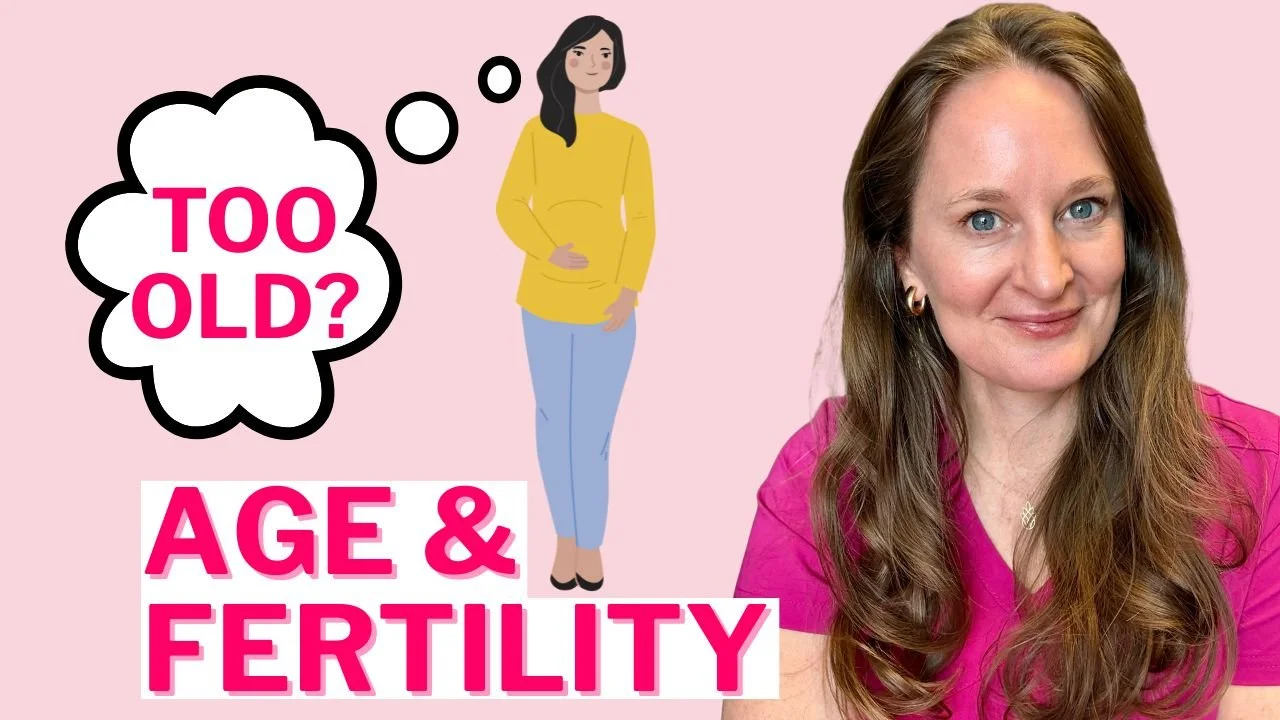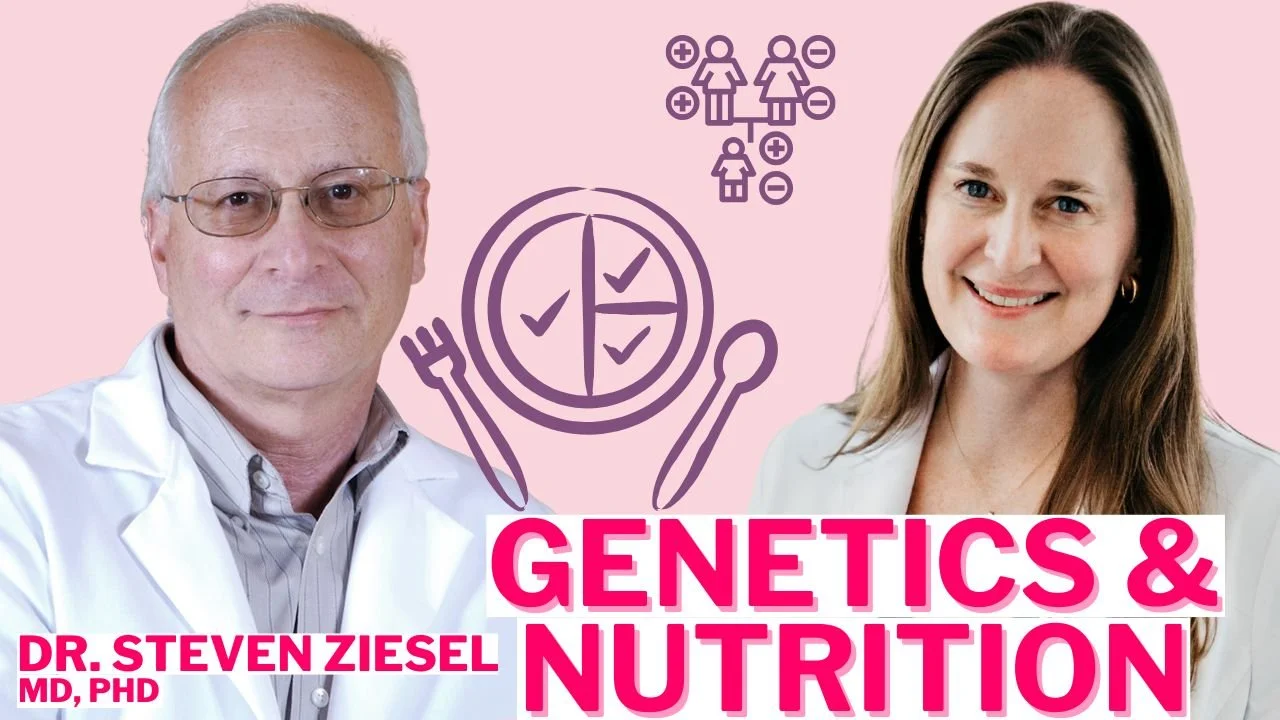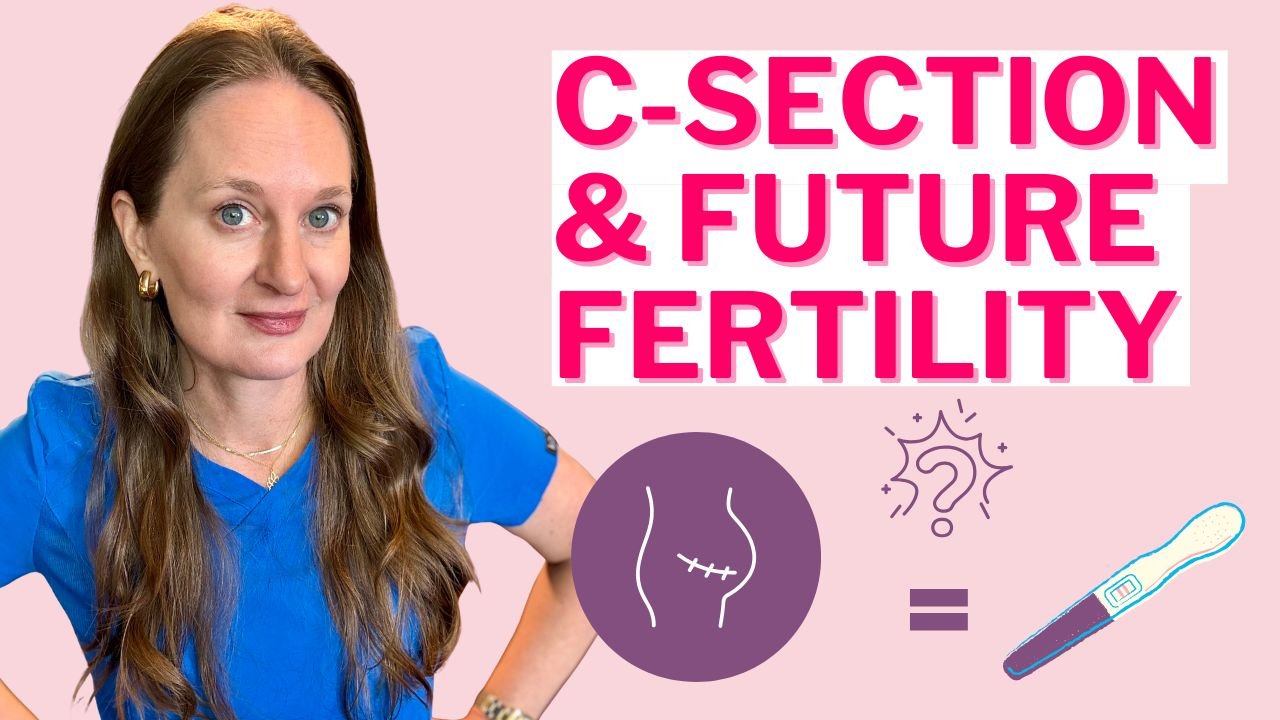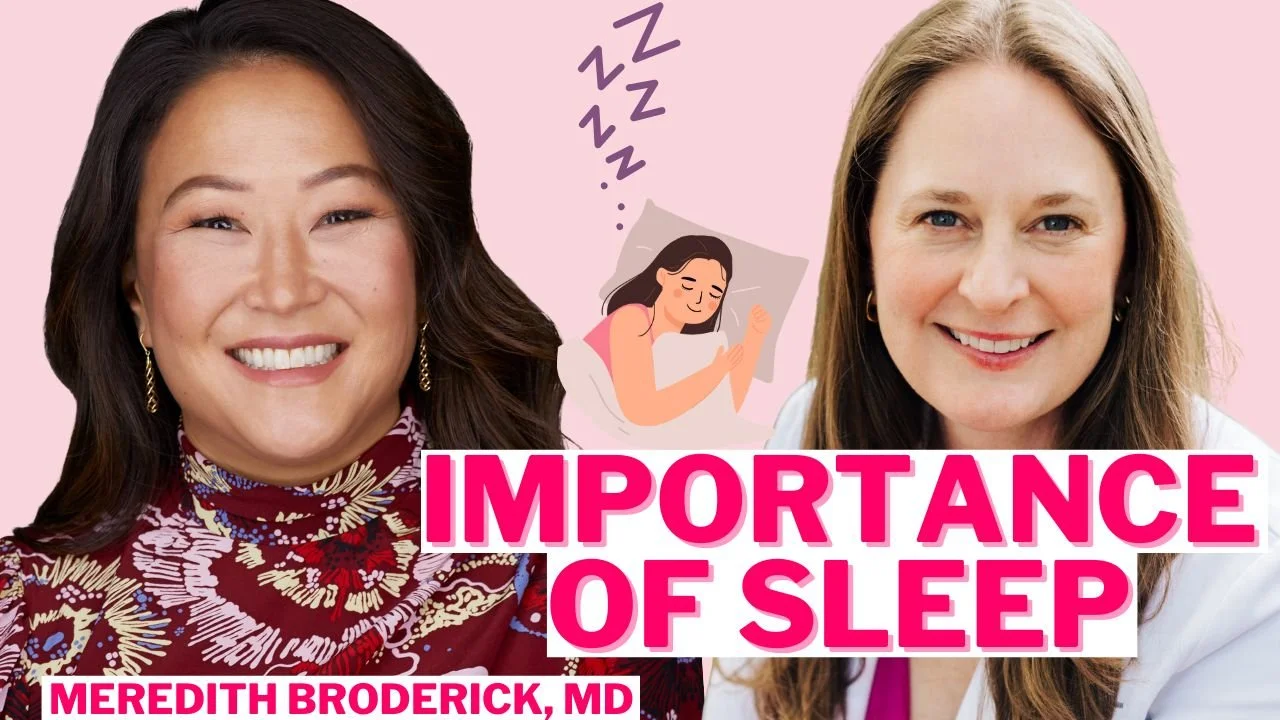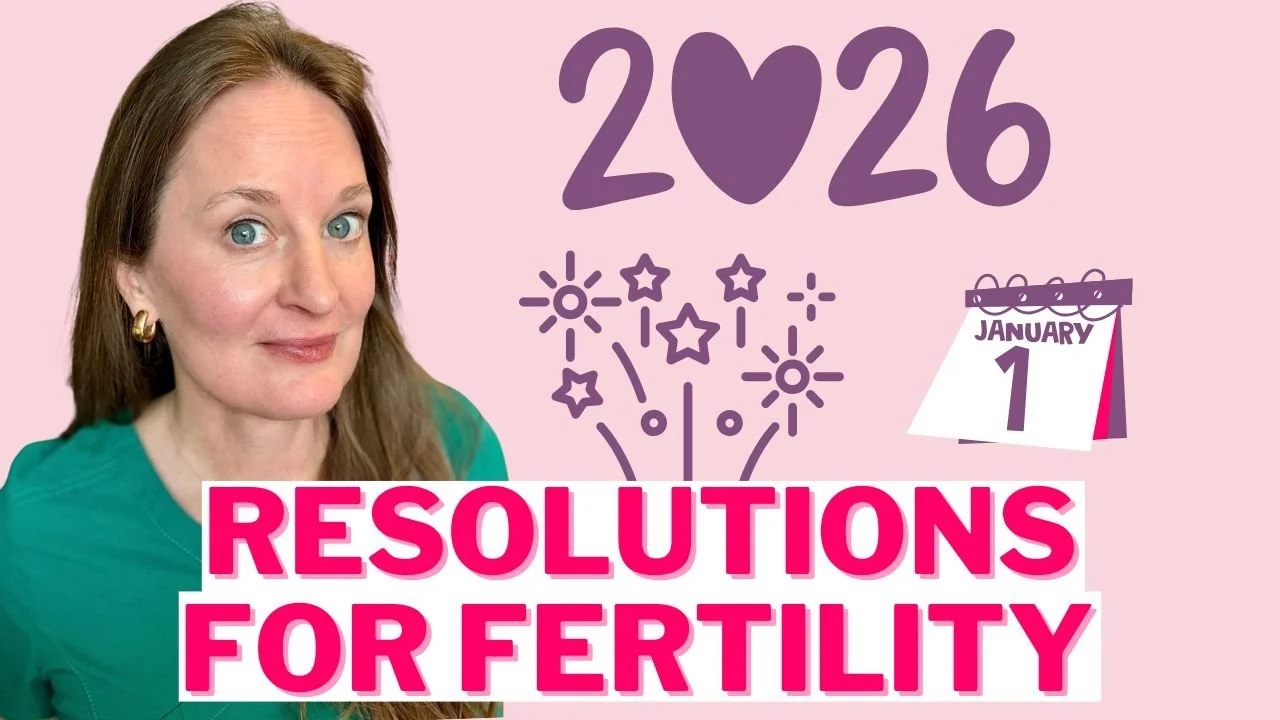
Resources for Fertility
First things first, you’re in a safe space.
My fertility content is well-researched and evidence-based, but it’s also open-minded and compassionate. I’ve been a reproductive endocrinologist and OBGYN for over 15 years, and I’ve realized that fertility’s mental and emotional considerations can be as important as the protocols we do or the medications we choose.

Featured video:
Does Stress Cause Infertility?
In this video, I cover the intricacies of diagnosing stress as an infertility cause, the connection between body and mind, the emotional experience of trying to build a family, and some of my favorite support communities for patients. For anyone who's looking to develop stress management toolkit, exercise mindfulness, and lower cortisol levels, this video is a must-watch.
Newest posts:
In the ever-evolving world of women's health, one topic has consistently captured the attention of those seeking to understand their bodies on a deeper level - cycle tracking. For decades, the pioneering work of Dr. Toni Weschler, author of the groundbreaking book "Taking Charge of Your Fertility," has empowered countless individuals to take control of their reproductive health.
Now, with the introduction of the Cylicity app, developed by Dr. Weschler's niece, Sabrina Nowicki, the journey of cycle tracking has entered a new era of accessibility and education.
If you've had a C-section, you may be wondering if it's impacting your fertility or future pregnancy plans. Many women are unaware of a little-known condition called an isthmocele, which can develop as a result of a previous C-section and lead to unexpected symptoms and complications.
In this comprehensive blog post, we'll dive deep into the world of isthmocele, exploring what it is, how common it is, and the potential impact it can have on your reproductive health.
Preparing for an embryo transfer can feel equal parts exciting and nerve-wracking. You've come so far in your fertility journey, and this is a pivotal moment. What can you do to give your embryo the best chance of implanting and developing into a healthy pregnancy?
In this comprehensive guide, we'll answer your top questions about embryo transfers and provide science-backed tips to optimize your success.
Are you starting to think about fertility testing? Have you been trying to conceive and wondering which tests actually matter? Or are you overwhelmed by conflicting advice and unsure where to begin?
In this comprehensive guide, we'll break down fertility testing with clarity, compassion, and evidence-based insights to help you move forward feeling informed instead of intimidated.
In the ever-evolving world of reproductive medicine, the boundaries of what's possible when it comes to age and fertility continue to be pushed. From record-breaking pregnancies in women well past the average age of menopause to the growing role of paternal age in family planning, the science and ethics surrounding this topic are complex and nuanced.
As a double board-certified reproductive endocrinologist and OB/GYN with over 20 years of experience, I've had a front-row seat to the incredible advancements in this field. In this in-depth blog post, I'll share my expertise and insights to help you navigate the realities, risks, and considerations of pregnancy at advanced maternal and paternal ages.
In the ever-evolving world of healthcare, one area that has seen a remarkable transformation is the field of nutrition. For decades, the prevailing approach to dietary recommendations has been a one-size-fits-all model, leaving many individuals struggling to find the right balance of nutrients for their unique needs.
However, the groundbreaking research of Dr. Steven Zeisel has shed light on a new frontier – the intersection of genetics, metabolism, and personalized nutrition.
If you've had a C-section or are planning one, you may be wondering how it could impact your future fertility and pregnancy outcomes. These are common concerns that many of my patients have, and it's important to understand the research on this topic.
In this in-depth blog post, I'll dive into a landmark study that looked at over 30 million pregnancies to explore the potential effects of C-sections on fertility, miscarriage rates, and other pregnancy complications. I'll also share some frequently asked questions and provide you with essential questions to ask your healthcare provider to advocate for your personal care.
In this in-depth blog post, we'll explore the powerful role that sleep plays in your body and why it's not a luxury, but a biological necessity that helps you live a healthier, more vibrant life.
We'll hear from sleep expert Dr. Meredith Broderick on the surprising ways that sleep disorders can impact everything from your fertility to your risk of chronic disease. And we'll provide practical, evidence-based steps you can take to start improving your sleep - without shame, perfection, or fear.
The new year is upon us, and for many, this can be a time of hope and new beginnings. If getting pregnant is one of your top goals for 2023, you'll want to listen up.
In this comprehensive guide, we'll cover everything you need to know about resetting your reproductive health to maximize your chances of conceiving in the year ahead.
If you're trying to conceive or are already pregnant, you've likely heard the terms "folic acid" and "folate" thrown around a lot. But do you really understand the difference between the two? And more importantly, does it actually matter which one you take?
The truth is, the folic acid vs. folate debate can get pretty confusing, with a lot of conflicting information out there. Some experts tout the benefits of folate, claiming it's a more natural and better-absorbed form of vitamin B9. Others insist that folic acid is just fine, and that you don't need to worry about getting the "right" type.
My must-read picks:
In the ever-evolving world of women's health, one topic has consistently captured the attention of those seeking to understand their bodies on a deeper level - cycle tracking. For decades, the pioneering work of Dr. Toni Weschler, author of the groundbreaking book "Taking Charge of Your Fertility," has empowered countless individuals to take control of their reproductive health.
Now, with the introduction of the Cylicity app, developed by Dr. Weschler's niece, Sabrina Nowicki, the journey of cycle tracking has entered a new era of accessibility and education.
If you've had a C-section, you may be wondering if it's impacting your fertility or future pregnancy plans. Many women are unaware of a little-known condition called an isthmocele, which can develop as a result of a previous C-section and lead to unexpected symptoms and complications.
In this comprehensive blog post, we'll dive deep into the world of isthmocele, exploring what it is, how common it is, and the potential impact it can have on your reproductive health.
Preparing for an embryo transfer can feel equal parts exciting and nerve-wracking. You've come so far in your fertility journey, and this is a pivotal moment. What can you do to give your embryo the best chance of implanting and developing into a healthy pregnancy?
In this comprehensive guide, we'll answer your top questions about embryo transfers and provide science-backed tips to optimize your success.
Are you starting to think about fertility testing? Have you been trying to conceive and wondering which tests actually matter? Or are you overwhelmed by conflicting advice and unsure where to begin?
In this comprehensive guide, we'll break down fertility testing with clarity, compassion, and evidence-based insights to help you move forward feeling informed instead of intimidated.
In the ever-evolving world of reproductive medicine, the boundaries of what's possible when it comes to age and fertility continue to be pushed. From record-breaking pregnancies in women well past the average age of menopause to the growing role of paternal age in family planning, the science and ethics surrounding this topic are complex and nuanced.
As a double board-certified reproductive endocrinologist and OB/GYN with over 20 years of experience, I've had a front-row seat to the incredible advancements in this field. In this in-depth blog post, I'll share my expertise and insights to help you navigate the realities, risks, and considerations of pregnancy at advanced maternal and paternal ages.
In the ever-evolving world of healthcare, one area that has seen a remarkable transformation is the field of nutrition. For decades, the prevailing approach to dietary recommendations has been a one-size-fits-all model, leaving many individuals struggling to find the right balance of nutrients for their unique needs.
However, the groundbreaking research of Dr. Steven Zeisel has shed light on a new frontier – the intersection of genetics, metabolism, and personalized nutrition.
If you've had a C-section or are planning one, you may be wondering how it could impact your future fertility and pregnancy outcomes. These are common concerns that many of my patients have, and it's important to understand the research on this topic.
In this in-depth blog post, I'll dive into a landmark study that looked at over 30 million pregnancies to explore the potential effects of C-sections on fertility, miscarriage rates, and other pregnancy complications. I'll also share some frequently asked questions and provide you with essential questions to ask your healthcare provider to advocate for your personal care.
In this in-depth blog post, we'll explore the powerful role that sleep plays in your body and why it's not a luxury, but a biological necessity that helps you live a healthier, more vibrant life.
We'll hear from sleep expert Dr. Meredith Broderick on the surprising ways that sleep disorders can impact everything from your fertility to your risk of chronic disease. And we'll provide practical, evidence-based steps you can take to start improving your sleep - without shame, perfection, or fear.
The new year is upon us, and for many, this can be a time of hope and new beginnings. If getting pregnant is one of your top goals for 2023, you'll want to listen up.
In this comprehensive guide, we'll cover everything you need to know about resetting your reproductive health to maximize your chances of conceiving in the year ahead.
If you're trying to conceive or are already pregnant, you've likely heard the terms "folic acid" and "folate" thrown around a lot. But do you really understand the difference between the two? And more importantly, does it actually matter which one you take?
The truth is, the folic acid vs. folate debate can get pretty confusing, with a lot of conflicting information out there. Some experts tout the benefits of folate, claiming it's a more natural and better-absorbed form of vitamin B9. Others insist that folic acid is just fine, and that you don't need to worry about getting the "right" type.
Fertility content on TikTok:
@drlorashahine I loathe the word ‘JUST’ #infertility #ttc #miscarriage #fertilitydoctor
♬ original sound - Lora Shahine, MD
@drlorashahine Easy to get confused - here to help! #fertility #infertility #ivf #ovulation
♬ original sound - Lora Shahine, MD
@drlorashahine First in a series - let me know what you want to learn about! #fertility #women #ttc #fertilitytips
♬ Fertility Tips Ovulation Edition - Lora Shahine, MD
Fertility content on Instagram:
Popular posts:
In the ever-evolving world of women's health, one topic has consistently captured the attention of those seeking to understand their bodies on a deeper level - cycle tracking. For decades, the pioneering work of Dr. Toni Weschler, author of the groundbreaking book "Taking Charge of Your Fertility," has empowered countless individuals to take control of their reproductive health.
Now, with the introduction of the Cylicity app, developed by Dr. Weschler's niece, Sabrina Nowicki, the journey of cycle tracking has entered a new era of accessibility and education.
If you've had a C-section, you may be wondering if it's impacting your fertility or future pregnancy plans. Many women are unaware of a little-known condition called an isthmocele, which can develop as a result of a previous C-section and lead to unexpected symptoms and complications.
In this comprehensive blog post, we'll dive deep into the world of isthmocele, exploring what it is, how common it is, and the potential impact it can have on your reproductive health.
Preparing for an embryo transfer can feel equal parts exciting and nerve-wracking. You've come so far in your fertility journey, and this is a pivotal moment. What can you do to give your embryo the best chance of implanting and developing into a healthy pregnancy?
In this comprehensive guide, we'll answer your top questions about embryo transfers and provide science-backed tips to optimize your success.
Are you starting to think about fertility testing? Have you been trying to conceive and wondering which tests actually matter? Or are you overwhelmed by conflicting advice and unsure where to begin?
In this comprehensive guide, we'll break down fertility testing with clarity, compassion, and evidence-based insights to help you move forward feeling informed instead of intimidated.
In the ever-evolving world of reproductive medicine, the boundaries of what's possible when it comes to age and fertility continue to be pushed. From record-breaking pregnancies in women well past the average age of menopause to the growing role of paternal age in family planning, the science and ethics surrounding this topic are complex and nuanced.
As a double board-certified reproductive endocrinologist and OB/GYN with over 20 years of experience, I've had a front-row seat to the incredible advancements in this field. In this in-depth blog post, I'll share my expertise and insights to help you navigate the realities, risks, and considerations of pregnancy at advanced maternal and paternal ages.
In the ever-evolving world of healthcare, one area that has seen a remarkable transformation is the field of nutrition. For decades, the prevailing approach to dietary recommendations has been a one-size-fits-all model, leaving many individuals struggling to find the right balance of nutrients for their unique needs.
However, the groundbreaking research of Dr. Steven Zeisel has shed light on a new frontier – the intersection of genetics, metabolism, and personalized nutrition.
If you've had a C-section or are planning one, you may be wondering how it could impact your future fertility and pregnancy outcomes. These are common concerns that many of my patients have, and it's important to understand the research on this topic.
In this in-depth blog post, I'll dive into a landmark study that looked at over 30 million pregnancies to explore the potential effects of C-sections on fertility, miscarriage rates, and other pregnancy complications. I'll also share some frequently asked questions and provide you with essential questions to ask your healthcare provider to advocate for your personal care.
In this in-depth blog post, we'll explore the powerful role that sleep plays in your body and why it's not a luxury, but a biological necessity that helps you live a healthier, more vibrant life.
We'll hear from sleep expert Dr. Meredith Broderick on the surprising ways that sleep disorders can impact everything from your fertility to your risk of chronic disease. And we'll provide practical, evidence-based steps you can take to start improving your sleep - without shame, perfection, or fear.
The new year is upon us, and for many, this can be a time of hope and new beginnings. If getting pregnant is one of your top goals for 2023, you'll want to listen up.
In this comprehensive guide, we'll cover everything you need to know about resetting your reproductive health to maximize your chances of conceiving in the year ahead.
If you're trying to conceive or are already pregnant, you've likely heard the terms "folic acid" and "folate" thrown around a lot. But do you really understand the difference between the two? And more importantly, does it actually matter which one you take?
The truth is, the folic acid vs. folate debate can get pretty confusing, with a lot of conflicting information out there. Some experts tout the benefits of folate, claiming it's a more natural and better-absorbed form of vitamin B9. Others insist that folic acid is just fine, and that you don't need to worry about getting the "right" type.
Join my supportive, passionate, and connected community of 350k+.
My social media channels are my platform for infertility and miscarriage education. I find joy in educating with these creative outlets and look forward to connecting with you there.
Find peace of mind with my free guide to easily decrease toxins exposure.
